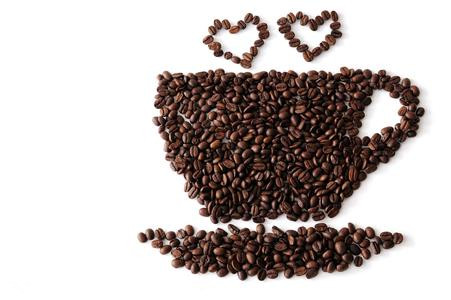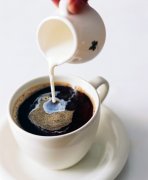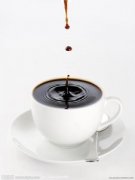Why Blue Mountain Coffee Is So Expensive
According to international practice, coffee has two main paths to gain the right to speak, either quantity or quality. Looking around the world, there are two main models for Yunnan coffee: the quantity of Vietnamese coffee and the quality of Blue Mountain coffee.

Although Vietnamese coffee has a long history of drinking locally, it was only in the mid-1970s that large-scale production was realized. In just a few years, Vietnam coffee has become the world's largest coffee producer, and the "Vietnam speed" is amazing.
In fact, in addition to the great difference between Yunnan and Vietnam in the culture of drinking coffee for everyone, Vietnam's coffee industry has many similar problems in the early stage of development, such as scattered, chaotic and poor.
However, under the control of the government, Vietnamese coffee began to gradually become regular.
First of all, coffee has been promoted to the height of national strategy in the industrial planning of the Vietnamese government, and the government has invested a large amount of financial funds to encourage people to grow coffee widely and give certain financial subsidies to farmers.
While encouraging people to grow coffee, the government supports large coffee companies while granting interest-free loans to small businesses to encourage them to buy machines from Germany and Japan for deep processing. Under such a pattern, micro-enterprises were not in a marginal position at the beginning, and a number of coffee enterprises participated in the competition in the whole market for a while, which led to the revitalization of the whole coffee industry.
In the face of unstable coffee prices and suppressing the enthusiasm of coffee farmers, the Vietnamese government adopts the method of government collection and storage to stabilize prices and protect the enthusiasm of domestic coffee farmers.
However, there are also many problems in Vietnamese coffee cultivation. The disorderly cultivation of people leads to serious environmental pollution. In addition, frequent natural disasters also affect the quality of Vietnamese coffee.
Different from Vietnam's development model, Blue Mountain Coffee produces only 2400 tons per year, but its price is extremely expensive, making it the king of coffee prices.
Blue Mountain Coffee's status is closely related to the policies of the Jamaica government. Compared with the loose guidance of the Vietnamese government, the control of the Jamaica government is almost strict.
In 1948, the world-famous Jamaica Coffee Board (CIB) was formally established, and then the Jamaica Blue Mountain Coffee Industry Management Act was promulgated. The Coffee Board (CIB) strictly and carefully classified the planting places and coffee bean categories of Blue Mountain Coffee, thus opening the prelude of the Jamaica government's control over Blue Mountain Coffee from planting to final export.
At source, according to the Jamaica Coffee Board, only coffee beans grown in Saint Andrew, Saint Thomas, Portland and Saint Mary at altitudes between 915 and 1680 meters can be called Blue Mountain Coffee. This standard was subsequently endorsed by the United States and the European Union.
The government of Jamaica established the Arras Town Land Board in the 1950s to help develop the eastern part of the island, which in turn took over coffee bean manufacturing rights and oversaw the manufacture of Blue Mountain coffee. The Jamaica government authorizes only five domestic manufacturers to process Blue Mountain coffee, strictly controls quotas, and discloses the names of these five manufacturers to the world, which is tantamount to telling the world that coffee grown in the Blue Mountain region of Jamaica has standards to protect it from the beginning of manufacture.
In addition, any company importing Blue Mountain Coffee or manufacturing the namesake product will need to obtain a certificate from the Jamaica Coffee Board and submit 1% of its revenue to Jamaica as a royalty.
Important Notice :
前街咖啡 FrontStreet Coffee has moved to new addredd:
FrontStreet Coffee Address: 315,Donghua East Road,GuangZhou
Tel:020 38364473
- Prev

High-quality coffee beans recommend several world-famous coffee beans
Many people have heard of the world's most famous coffee, such as raccoon coffee and Kopi Luwak. Maybe people all know that the world's most famous coffee is expensive, and maybe people all know the general background of cat coffee. But where is the world's most famous coffee expensive and tastes good? do you often want to taste the real world's most famous coffee? There is one in the world that sells for 600 per kilogram.
- Next

Ecuadorian coffee comes from the equatorial boutique coffee beans.
Most countries in the world are rich in only one kind of coffee beans, while Ecuador is one of the few countries in the world that can produce both Arabica coffee beans and Robusta coffee beans. The Ecuadorian Coffee tasting, sponsored by the Consulate of Ecuador in Guangzhou, was recently held at the Art Cafe in the Guangdong Provincial Museum. Organic beans, flowers and fruits, caramel smell to the nostrils according to the melon
Related
- Detailed explanation of Jadeite planting Land in Panamanian Jadeite Manor introduction to the grading system of Jadeite competitive bidding, Red bid, Green bid and Rose Summer
- Story of Coffee planting in Brenka region of Costa Rica Stonehenge Manor anaerobic heavy honey treatment of flavor mouth
- What's on the barrel of Blue Mountain Coffee beans?
- Can American coffee also pull flowers? How to use hot American style to pull out a good-looking pattern?
- Can you make a cold extract with coffee beans? What is the right proportion for cold-extracted coffee formula?
- Indonesian PWN Gold Mandrine Coffee Origin Features Flavor How to Chong? Mandolin coffee is American.
- A brief introduction to the flavor characteristics of Brazilian yellow bourbon coffee beans
- What is the effect of different water quality on the flavor of cold-extracted coffee? What kind of water is best for brewing coffee?
- Why do you think of Rose Summer whenever you mention Panamanian coffee?
- Introduction to the characteristics of authentic blue mountain coffee bean producing areas? What is the CIB Coffee Authority in Jamaica?

